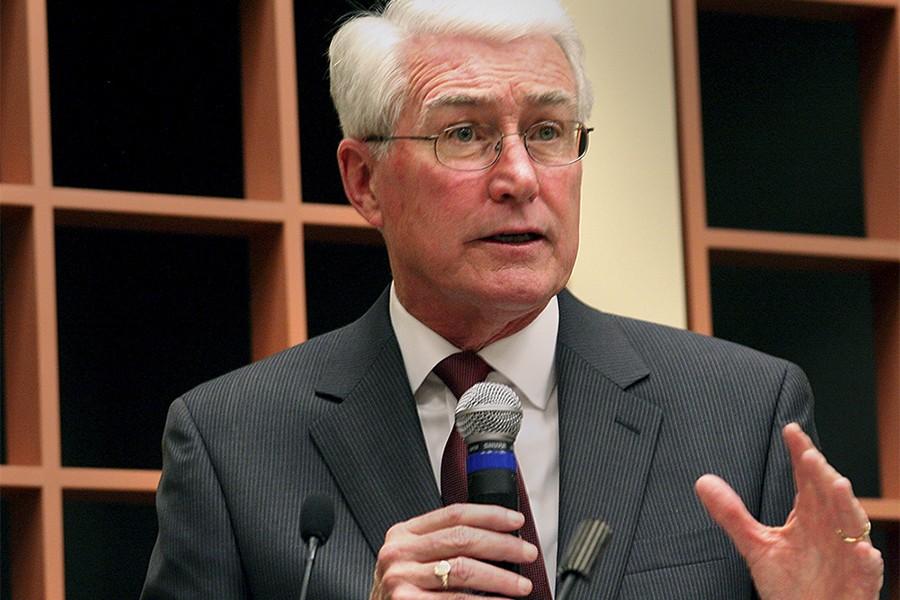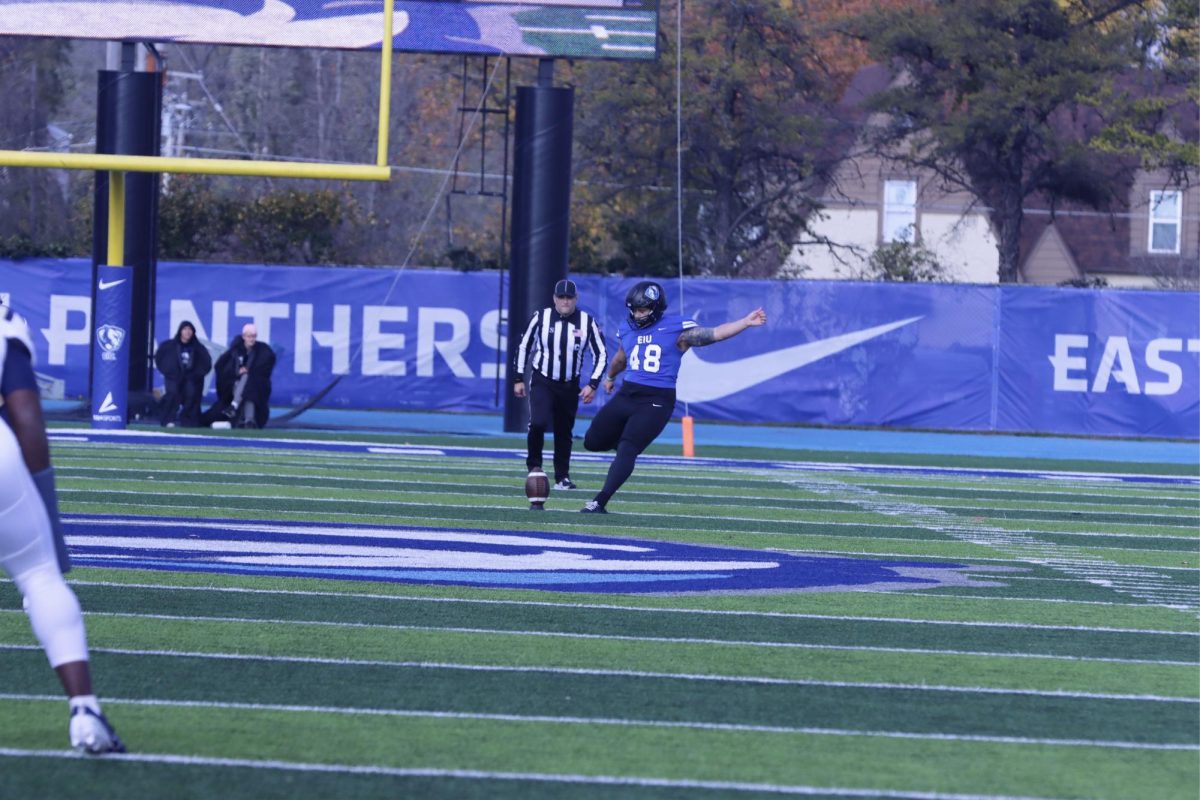Budget may be reduced
Legislation has been introduced in the Illinois General Assembly that would reduce the Fiscal Year 2009 budgets by 8 percent for all state agencies that report to the governor.
Eastern is one of those agencies.
Wednesday night, President Bill Perry was asked to outline potential impacts that such a cut would have on the university and send it to the legislature for a hearing held Thursday in Springfield.
Eight percent of Eastern’s appropriated funds equates to $4 million. This morning a tentative list of potential impacts was put together.
“This list is an honest assessment of what the impacts will be,” Perry said.
“There could be others, but we have sent this list in to the legislature for their information.”
That list was then sent out via e-mail to the campus community.
“I believe that the best thing to do with regard to budgets and these kinds of considerations is to be open and transparent about it,” Perry said. “The email was not sent out to alarm people but simply to inform people of what we submitted to legislature.”
The list of tentative, potential impacts includes reduction of non-safety related maintenance, postponement of filling some vacant positions, reduction of spending on programmatic and equipment needs, reduction of summer school offerings, reduction of utility expenditures and implementation of some layoffs.
Perry said when looking at areas to cut, he first wants to minimize impact on Eastern’s students, faculty and staff.
“That’s the top priority, to minimize that impact,” he said.
Perry’s next priority is to minimize the impact on programs, and third is to minimize impact on Eastern’s facilities.
When looking for cuts he starts at the bottom.
“Most important is our people. Next is our programs. Next is our facilities,” Perry said.
Those three areas were looked at when considering potential impacts.
Non-safety related maintenance involves the facilities, his third priority.
Perry said the vacant positions that wouldn’t be filled would be positions that are currently not filled right now.
“You may have an office that is short one secretary right now so you don’t hire a secretary,” Perry said.
So no person would be in the position to be affected.
“That might have a maintenance impact,” Perry said. “It could be a building service worker position that’s open. It might have an impact on facilities or maintenance or programmatic.”
Perry also listed reduction of spending on programmatic and equipment needs.
“That’s not people although, if a new piece of equipment would make you more efficient at your job that would be great, but if we can’t afford it yet the person can still do their job,” he said.
Perry said the reduction of summer school offerings could create a little bit of a pinch for some students.
“If we had to actually get to this point, certainly we’ll look first at the smaller classes,” he said. “We would look at a lot of things, which classes are needed for some students to graduate? There are a number of issues there. Everything would be looked at very carefully. This wouldn’t just be some sort of across the board thing.”
The reduction of utility expenditures would involve lowering heat in the buildings.
He said that would affect the work environment but no one has to be laid off.
“It may be a little colder in class, but you can still have class,” Perry said.
He said the university would probably drop the temperature to 64 degrees during the day instead of the 70 or 72 degrees it currently stands at.
“Some of that can be done centrally with control systems and some of it’s going to be locally with these radiators in the office,” he said.
Perry said the university can get quite a bit out of these things listed to meet the $4 million.
“Layoffs would be the very last thing we would look at because that would affect people directly,” he said.
The university has not been asked to return any appropriated funds. Perry said he’s keeping everyone informed as discussion continues in Springfield.
Perry said if the university were asked to return appropriated dollars, he would consult first with Faculty Senate, staff senate, Student Senate, Counsel of University Planning and Budget, the deans, the provost and the vice presidents to discuss the university’s options.
He said he would consult with CUPB, which is a representative group that would advise him on what they thought reasonable actions would be.
While Perry is consulting with these various groups, the vice presidents would be consulting with their deans and directors.
“We would pull all that together and then have an open forum to discuss with the campus community the options that we have,” he said.
Perry said it will all be a very open and consultative process.
Then, he said, the university would come to a decision.
If the legislation passed, the university would be told to report their plans by a certain date, Perry said.
If that’s a very short timeline, Perry said he would have to have all these meetings in a very compressed, but thorough, manner.
“That consultation would become my highest priority and the vice presidents highest priority,” he said.
Perry said the university now has to wait and see what the outcome of the legislation is.
“This is advisory,” he said. “No actions have been taken yet. No specific discussions of any of these items is ongoing.”
Perry said the sending of this e-mail was so that everyone would be informed of this situation.
“Regardless of what happens in the coming days, weeks and months our top priority is our people, our campus community,” he said.
Emily Zulz can be reached at 581-7942 or at eazulz@eiu.edu.


































































